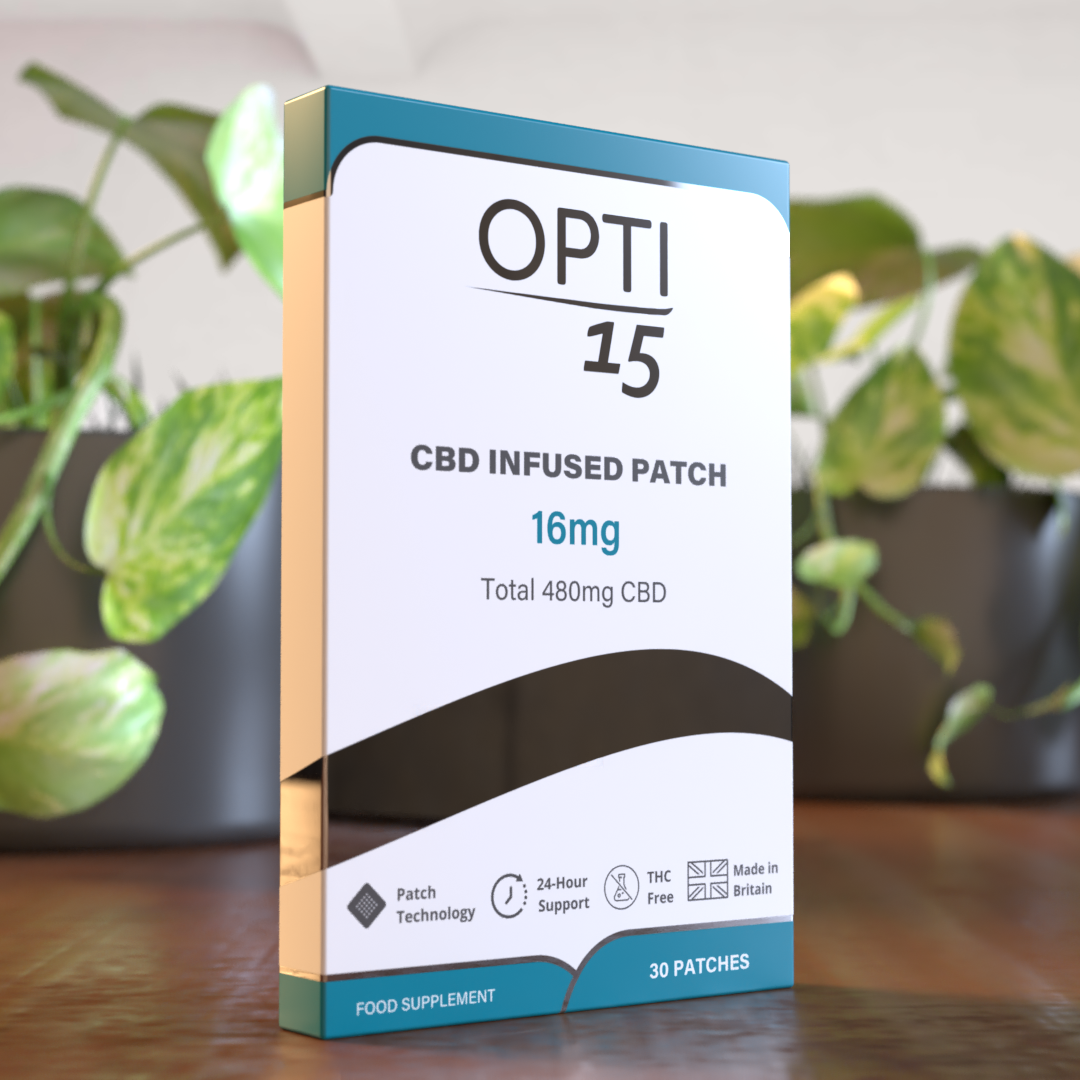CBG vs CBD: Benefits, Differences, and How They Work

Among the many biologically active substances found in cannabis are cannabinoids. This plant contains two no psychoactive compounds: CBD and CBG. When these two substances are taken orally, they interact with the body's cannabinoid receptors. These receptors belong to the endocannabinoid system, which is a component of the neurological system. This system is involved in a number of bodily functions, such as memory, hunger, and pain perception.
In this article, we will explore what CBD and CBG are, their differences, and how they work in our bodies.
What is CBG?
Cannabigerol (CBG) is one kind of cannabinoid present in the cannabis plant. It's frequently called the "mother of all cannabinoids." The reason for this is that cannabigerolic acid (CBGA), an acidic version of CBG, is the source of other cannabinoids.
In comparison to other cannabinoids like tetrahydrocannabinol (THC) and cannabidiol (CBD), CBG is present in cannabis plants in lesser amounts. This makes consumer goods made from cannabigerol uncommon and frequently costly. Nonetheless, due to the numerous possible advantages that the cannabinoid provides, CBG is becoming more and more popular.
How does CBG work?
CBG interacts with the body's endocannabinoid system (ECS) by attaching to and activating cannabinoid receptors (CB1 and CB2). Additionally, it affects mood and anxiety via interacting with non-cannabinoid receptors, such as the serotonin 5-HT1A receptor. Although it binds to CB1 receptors, CBG doesn't usually produce psychoactive effects like a "high" since it doesn't bind as strongly as THC.
What is CBD?
CBD is part of the cannabis plant. Although it is psychoactive, it does not provide the "high" that studies, CBD can significantly alter patterns of brain connection and activity.many people associate with cannabis usage, as it has low THC content. According to imaging
Additionally, studies indicate that persons with specific medical conditions may benefit from CBD, including
- anxiety
- auto-inflammatory diseases
- neurodegenerative diseases, such as Alzheimer’s disease and Parkinson’s disease
How does CBD work?
CBD interacts with central nervous system receptors and provides a relaxing effect. Additionally, it might have anti-inflammatory and pain-relieving properties that aid in pain management.
As an alternative to prescription medications, many are using CBD to treat their symptoms. Selective serotonin reuptake inhibitors, or SSRIs, can have a lot of negative effects, so people with anxiety or depression may want to stay away from them. CBD offers the possibility of avoiding extremely addictive narcotics for those looking for pain alleviation.
What is the difference between CBD and CBG?
CBD and CBG are both part of cannabis plants. The primary distinction between the two is that, although CBG is a minor cannabinoid, CBD is a major one. This indicates that CBD is typically found in larger concentrations in cannabis than CBG.
Additionally, the two exhibit distinct behaviors when they come into contact with the body's cannabinoid receptors.

Potential benefits of CBG:
CBD has numerous therapeutic health benefits:
-
Anxiety and depression: According to one study, the main reason people used cannabis preparations high in CBG was to lessen anxiety, and one in three said they did so to alleviate depression. The majority of consumers stated that they believed CBG to be more useful than traditional medications for these purposes.
-
Chronic pain: According to the above-mentioned survey, chronic pain was the second most prevalent reason for using CBG. About 73.9% of respondents said it was more effective than conventional medications. Pain lasting three months or longer is considered chronic. About 51.6 million Americans, or one in five people, suffer from this kind of illness.
-
Inflammatory bowel disease (IBD): According to one study, cannabis and cannabinoids are used by 15% to 40% of individuals with inflammatory bowel disease (IBD) to both boost appetite and decrease pain. Researchers noted that while studies have indicated promise in its effects on IBD, there is a lack of high-quality evidence and guidance regarding the appropriate dosage and manner of administration.
-
Glaucoma: Glaucoma is more likely to develop in those with high intraocular pressure (IOP), sometimes referred to as eye pressure. Numerous investigations have examined how cannabis affects intraocular pressure. CBG have been shown to help lower intraocular pressure in both humans and animals, suggesting that they may be used to treat glaucoma.
- Cancer: According to a 2021 meta-analysis, CBG may also eradicate inflammatory cells linked to breast cancer in addition to preventing the growth of breast cancer cells.
Benefits of CBD:
CBD offers various benefits:
-
Pain relief: Originally utilized in Chinese medicine, cannabis has been used to relieve pain since 2900 B.C. Researchers suggest that these benefits could be due to substances like CBD in cannabis.
The endocannabinoid system regulates several processes in the body, such as sensations of pain. Neurotransmitters known as endocannabinoids are produced by the body and attach to cannabinoid receptors.
According to studies, CBD may help lessen chronic pain by interacting with neurotransmitters, lowering inflammation, and focusing on endocannabinoid receptor function.
-
Helps with mental health: Many people who suffer from mental health illnesses are interested in this natural therapy method because CBD oil has shown promise in treating some of these conditions.
According to a 2020 review of the literature on CBD and mood disorders, several studies indicate that CBD may have qualities that help lessen the symptoms of anxiety, depression, and even psychosis.
According to a small 2019 trial, CBD was also successful in lowering adult PTSD symptoms, such as nightmares.
-
Alleviate cancer-related symptoms: According to research published in 2022, CBD may help lessen several cancer-related symptoms and adverse effects associated with cancer therapy, such as pain, nausea, and vomiting.
To find out if CBD should be used more frequently to treat cancer symptoms, more research is necessary.
-
Helps with sleep: According to research, CBD can help control sleep cycles by addressing the root causes of sleep disturbances, including chronic pain, stress, and anxiety. Insomnia and poor sleep quality affect millions of people globally.
- By reducing night-time awakenings, CBD may help people sleep for longer periods overall.
- REM sleep behavior disorder (RBD), a common issue among people with Parkinson's disease, may be treated with CBD, according to research.
- Unlike traditional sleep aids, CBD is not addictive and does not leave you feeling sleepy the next day.
- By reducing night-time awakenings, CBD may help people sleep for longer periods overall.
- Reducing inflammation: CBD is beneficial for diseases like arthritis because of its anti-inflammatory qualities. CBD aids in lowering inflammation and joint pain. It can also help with post-workout recuperation, which shortens recovery times and eases aching muscles.
How is CBG consumed?
Oil is the most widely available commercial form of CBG, although it is costly and scarce. On the other hand, practically all of the cannabis cannabinoids are present in broad-spectrum CBD oils.
Wide-ranging Terpenes, which give plants their scent, are also present in CBD oils and can be found in a variety of plants, including fruit and herbs. According to a phenomenon known as the entourage effect, using terpenes and cannabis together increases their combined potency.
Some people use marijuana to get their CBG. However, this can lead to cannabis addiction. This is categorized as a cannabis use disorder, which can harm your social and personal connections in addition to your physical and mental health.
How is CBD consumed?
CBD products come in various forms. They are in the form of CBD gummies, oils, CBD drinks, and CBD patches. All these products have their unique benefits. CBD gummies come in various flavours and have pain-relieving properties. CBD oil can be used on places where you have pain. CBD oils are sometimes taken orally under the tongue for quicker absorption. CBD drinks are new in the market and are becoming increasingly popular for recreational purposes. CBD patches are new in the market of supplement technology. These adhesive patches are easy to use and provide a steady release of CBD throughout the day. They are worn on the arms or belly for about 8 hours a day.
Conclusion:
CBG and CBD are two promising non-intoxicating cannabinoids with distinct and overlapping medicinal advantages. Although CBD has a stronger reputation in the wellness industry and is backed by more research, CBG is becoming a more popular choice for people looking for more anti-inflammatory effects, energy, and focus. Both provide customized solutions for a range of medical requirements by interacting differently with the body's endocannabinoid system. The complex functions of various cannabinoids will become increasingly more apparent as research advances, pointing customers in the direction of more individualized cannabis-based wellness products.


